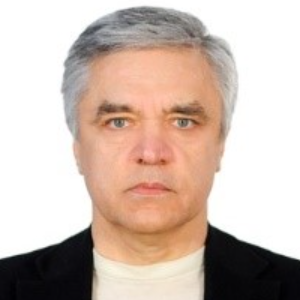Title : Personalized and Precision Medicine (PPM) as a unique healthcare model through bio design-driven translational applications and cardiology-related marketing to secure the human healthcare and biosafety
Abstract:
A new systems approach to diseased states and wellness result in a new branch in the healthcare services, namely, Personalized and Precision Medicine (PPM). To achieve the implementation of PPM concept, it is necessary to create a fundamentally new strategy based upon the recognition of biomarkers and thus biomarker-driven targeting to secure the grand future of drug discovery.
It would be extremely useful to integrate data harvesting from different databanks for further treatment to thus provide more tailored measures for the patients and pre-illness persons-at-risk, resulting in im-proved patient outcomes, reduced adverse events, and more cost effective use of the latest health care resources including diagnostic (companion ones), preventive and therapeutic (targeted molecular and cellular) etc.
In this context, the need for innovative heart disease treatments has become critical since the diseases remain the world’s biggest killer. The pace of innovation in Personalized & Precision Cardiology (PPC) is becoming fast.
A major paradigm shift has become the increasing recognition of the potential therapeutic utility of the targeted drugs for cardiovascular diseases, whilst opening up new avenues of therapeutic implications. As PPM continues to drive targeted immunotherapy development and cardiac biomarker discovery for healthcare services, cardiologists could indeed see their own PPM-based renaissance very soon.
In cardiovascular disease globally, PPM may result in much-needed innovation in the field and has the potential to eventually change the way we treat heart diseases altogether. So, PPC is thus poised to be-come the next great revolution in the daily practice, as well as in the maintenance of cardiovascular health and the prevention and cure of cardiovascular disease. PPM disrupts standard practice and draws from clinical testing, electronic health records, multi-OMICS profiling, big datasets, and novel analytical methods, to create a person-specific phenotype to identify an optimal intervention with minimal risk.
The promise of PPM and PPC is well understood but the newest tools will be needed for describing the cardiovascular health status of individuals and populations, including transdisciplinary 'OMICS' data, exposome-related datasets and social determinants of health, behaviours and motivations, patient-generated data, and the array of data in EMRs. Innovative cardiology and cardiac nanosurgery currently lead the way in PPC advancements, and health care under PPM-related armamentarium will become a more integrated, dynamic system, in which patients are becoming central stakeholders who contribute data and participate actively in shared decision-making. The proposal would ideally be suited for practi-tioners who already incorporate integrative approaches in their practice, as well as more traditional cli-nicians who want to learn more about PPM and PPC as a growing area.
PPM will need to demonstrate that phenotype-based person-specific interventions are superior to the current standard of care and, ultimately, have a population effect by moving the mean on the disease spectrum towards Health. Education, Affordability, and Public Acceptance of the strategy all play key roles in its ultimate implementation. This is the reason for developing global scientific, clinical, social, and educational projects in the area of PPM-based and PPC-guided clinical cardiology to elicit the con-tent of the new branch. In short, PPM will transform the way the physicians practice and will shake up the entire pharmaceutical value chain.



